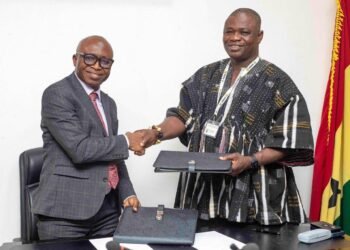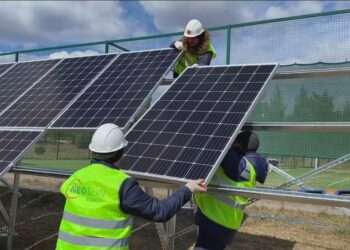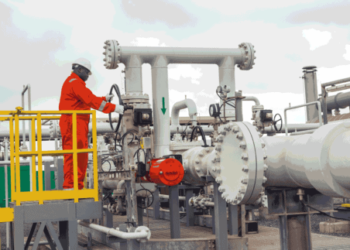The government has received an advance payment of US$1.3 million out of a US$50 million agreement with the World Bank’s Forest Carbon Partnership Facility for results-based payments, for reducing emissions from deforestation and forest degradation known as REDD+.
According to a statement by the Forestry Commission, the advance payment was included in the programme contract signed last year and the funds will be used for the Ghana Cocoa Forest REDD+ Programme (GCFRP), focused on cocoa forest mosaic landscapes in seven regions within the high forest zone. This emission reductions programme is anchored in the country’s Nationally Determined Contributions (NDCs) to the UN Framework Convention on Climate Change (UNFCCC).
The statement also said that, as part of the programme’s agreed plan, the advance payment received by the Forestry Commission, which houses the National REDD+ Secretariat, will fund activities such as livelihood support, trainings, reforestation and enrichment planting in the program areas, multi-stakeholder and multi-sectorial engagement, and essential program coordination costs.
According to the commission,
“the financing is especially timely, given the current COVID-19 situation, for Ghana to maintain momentum with this initiative and to ‘build back greener’.”
Commenting on the payment, Hon. Kwaku Asomah-Cheremeh, Ghana’s Minister of Lands and Natural Resources said,
“This program is an important vehicle for the effective and successful implementation of both government and private sector commitments under the Cocoa & Forests Initiative, which together feed into the overall forest sector contributions for Ghana’s international climate targets. This advance payment is vital to catalyze the program’s implementation efforts.”
The Chief Executive of the Forestry Commission, John M. Allotey, said that the emission reduction program is a unique private partnership.
“This emission reductions program is a unique public-private partnership between cocoa companies, traditional authorities, farmers, community members, the Ghana Cocoa Board and the Forestry Commission amongst others. It represents a pilot model for sustainable sourcing of cocoa in rapidly growing economies, while reducing emissions from deforestation and forest degradation and creating alternative and additional livelihoods. The Forestry Commission is therefore rallying the support of all stakeholders and beneficiaries to achieve successful implementation.”
World Bank’s Operations Manager in Ghana, Agata Pawlowska, also in the statement said,
“The advance payment can serve as catalyst for Ghana’s further progress in conserving forests and reducing emissions.”

The programme area, which spans nearly 6 million hectares, is home to 12 million people and includes 1.2 million hectares of forest reserves and national parks.
The programme will promote several environmental benefits such as preventing soil erosion and protecting water resources through sustainable land management practices. It will reduce further deforestation of natural forests and improve carbon sequestration through shade cocoa rehabilitation, enrichment planting and inter-cropping in the Bono, Ahafo, Western North, Ashanti, Eastern, Central and Western regions.
It will also support social benefits that provide farmers and community members with potential additional income on a sustainable basis, and plantation activities like nursery operations, planting, forest management and protection which will increase employment opportunities.
During the six-year lifetime of the GCFRP, as the results-based payments for verified emissions begin to flow to Ghana, they will serve as an ongoing incentive for the diverse stakeholders participating in this program and will be shared in accordance with the inclusive benefit-sharing plan.





















